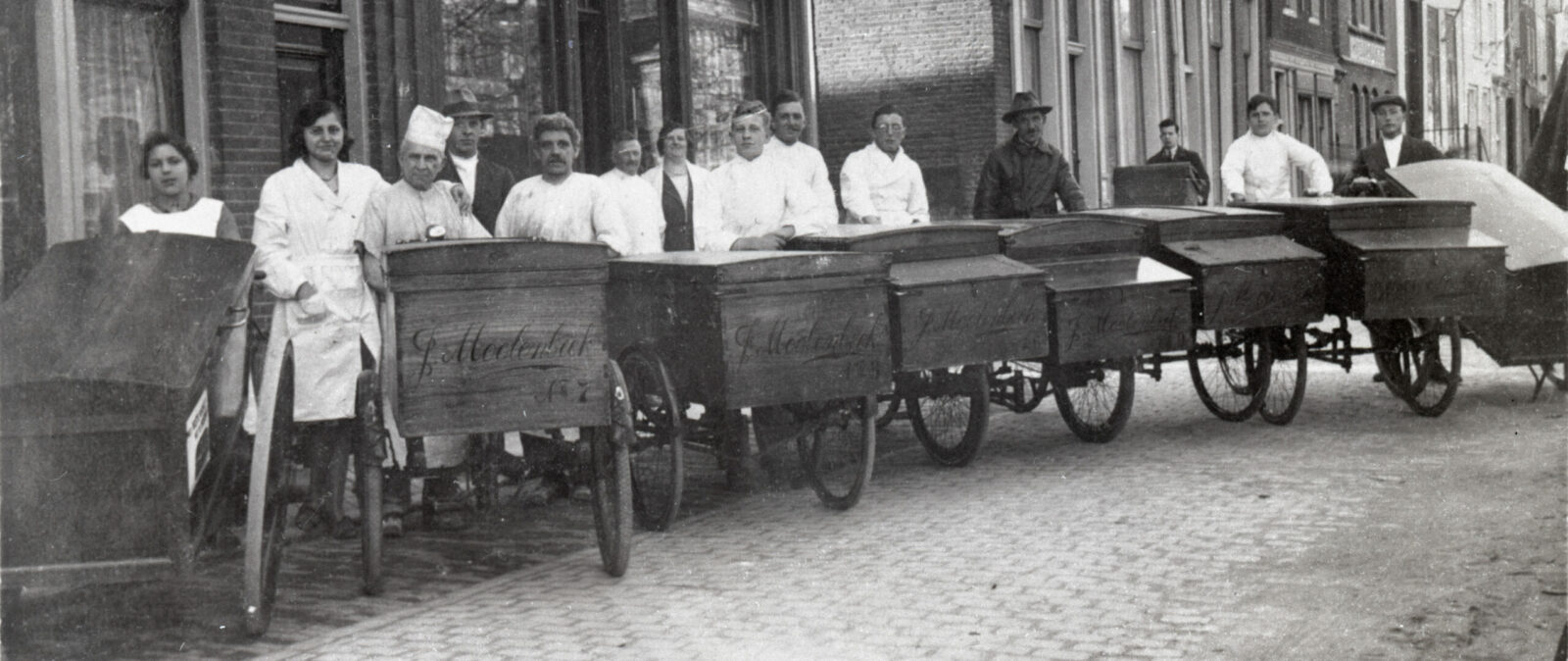Research Network ‘Globalisation, Inequality and Sustainability in Long-Term Perspective’
The network aims to enhance inter-university research cooperation between economic, social, technology and business historians working on globalisation, (economic) inequality and sustainable development in the Flemish-Dutch research community.
Research directors
Dr ir Frank Veraart (Eindhoven University of Technology)
Dr Robrecht Declercq (Ghent University)
Dr Daniel Gallardo Albarrán (Wageningen University & Research)
Description
This research network is a continuation of the former Research Network ‘Drivers and Carriers of Globalisation’, and is organised around three interrelated key themes central to current debates in the social sciences: globalisation, inequality, and sustainable development. These themes arguably represent some of the greatest societal challenges facing the world today. Our network aims to contribute to a better understanding of these challenges by rooting these themes in a historical perspective. The network hosts a variety of approaches, e.g. comparative and transnational, and stimulates the use of both quantitative and qualitative methods. Research within this network is not confined to a particular period of time. The network welcomes research initiatives, projects and thinking that tackle issues of globalisation, inequality, and sustainability in a long-term perspective.
Focus points
The network distinguishes three subthemes:
- Questions related to the subtheme of global connections and integration, or globalisation, of which various historians have shown that many characteristics of of its present-day’s processes can be traced back much further in time. Global history means both a way of looking at history, unravelling the interconnectedness of particular developments and phenomena, as well as a study object on its own:
- What were the prime determinants of (de-) globalisation and regionalisation in different periods of time?
- How, and by whom, did these processes take shape?
- How did the nation-state-change respond to these processes and assumed different roles?
- What can be said about tensions, conflicts, and welfare effects generated by these processes, and the consequences of globalisation on the long run?
- Questions related to the subtheme inequality – both between and within countries, the wide(ning) gap between rich and poor that remains one of the key problems of the world today. A lot of work in economic and social history has been concerned with the origins of the rise of global inequality – or Great Divergence – between Europe and the rest of the world:
- Since when did the West become wealthier than other areas of the world and what fundamentals explain this rise?
- Under what conditions did a country (or a region) become less egalitarian and when did it become more egalitarian in the past?
- How are these trends influenced by institutions and policies as they change over time?
- How does this relate to globalisation?
- Questions related to the subtheme of sustainable development in the past, both within and between countries. Sustainability histories study the developments the trade-offs (gains and losses) between material, social, economic and natural resources, caused by industrialisation, agricultural developments, globalisation and (international) trade, trade-offs now at the core of the contemporary debates about sustainability and coined with terms such as ´eco-friendly´, ´climate-neutral´ and ´Fair Trade’, while globalisation entangles sustainability aspects of various places in the world:
- What does literature show on global entanglement history, and in particular on the role of global trade and resource chains herein?
- Which processes and actors are/were involved in which way regarding global resource chains connecting the Global North and Global South within or across (post)colonial structures?
- Which perceptions of gains, losses, costs, and risks played a role amongst various countries various social groups, as well for (formerly) colonial as for non-colonial powers, including subaltern groups?
Examples of related projects
- Red Fever. The natural resource company and the commodification of the global copper frontier (1900-1939), Dr Robrecht Declercq (Ghent University)
- Unfair Trade. Globalisation, Institutions and Inequality in Southeast Asia, 1800-1940, dr. Pim de Zwart (Wageningen University & Research)
- African Demographic Dynamics – A Comparative study of Population Development from 1800 to 1960, Nicolai Baumert MSc (Lund University) and Professor Jutta Bolt (Lund University / University of Groningen)
- Athena – Access Tool for Historical ecology and Environmental Archaeology, Professor Jan Luiten van Zanden, (Utrecht University), Dr Thomas van Goethem (formerly Radboud University Nijmegen / Utrecht University, currently RIVM) and partners at Wageningen University & Research
- The Cultural Politics of Sustainable Urban Mobility, 1890-Present, led by Professor Ruth Oldenziel (Eindhoven University of Technology);
- Clio-Infra: Reconstructing Global Inequality, Professor Jan Luiten van Zanden and Dr Michail Moatsos(both Utrecht University) and partners at the International Institute for Social History (Amsterdam), University of Groningen, and University of Tübingen
- Well-being, Sustainability and Social Development, The Netherlands 1850–2050, Emeritus Professor Harry Lintsen, Dr Ir Frank Veraart (both Eindhoven University of Technology), Professor Jan-Pieter Smits (Statistics Netherlands – CBS / Eindhoven University of Technology), Professor John Grin (University of Amsterdam)
- Global Resources and Sustainability of European Modernization, 1820-2020 (GREASE), Professor Erik van der Vleuten and Dr Frank Veraart (both Eindhoven University of Technology)
- Between Commodity and Community. A Global and Comparative Research into Communal Land Rights Transformation in the Andes, 19th and 20th Centuries, Dr Hanne Cottyn (Ghent University)
- Paths through Slavery: Urban Slave Agency and Empowerment in Suriname, 1700-1863 , Dr Karwan Fatah-Black (Leiden University)
- The Global Rise of Modern Borders and Irregular Maritime Migration Networks (1882-1938): A Comparative Research Project on Atlantic and Pacific Migration System, Dr Torsten Feys (Ghent University)
- Pessimism and Prosperity. The Welfare Paradox of Interwar Europe in a Global Perspective, Professor Herman de Jong (University of Groningen)
- A Belgian Multinational Entreprise in the Making of the First Global Economy. The Business Empire of Edouard Empain (1880-1914), Dr Tobit Vandamme (Ghent University)


